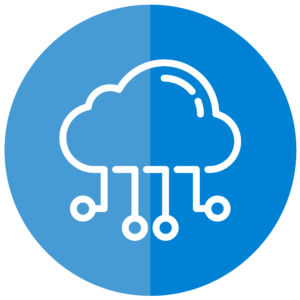Blockchain in African Digital Public Infrastructure
There is a hushed digital wind floating across the continent, imbued with transformative effects on governance, service delivery, trust in institutions and more historically unthinkable leaps. Its this change that Blockchain technology Africa lies at its core, is a powerful tool and more than just crypto currencies. The integration of blockchain in Africa is poised to become a digital public infrastructure upon which over time, countries across the continent can unlock new opportunities for identity, financial inclusion, transparency and decentralized access to public services.
We believe at eTraverse Africa that Blockchain digital transformation is a social change adapted to benefit the people, communities and governments everywhere. It weaves together narratives on blockchain tech in Africa maturing from just a buzzword to the cornerstone of digital inclusion as it fast-tracks creating more dependable, scalable and transparent ore infrastructure for years to come.
Africa’s Unique Infrastructure Challenge
While infrastructure ages in many western nations, much of the African continent is effectively building public transport systems or skipping straight to digital solutions. This clean sheet presents a huge silver-lining — instead of repeating old patterns, Africa can create new systems that are smarter, more decentralized and much more efficient from the get-go.
In many distant areas, paper-based identification, property registration, healthcare or financial services do not work properly due to corruption, inefficiency or lack of access to traditional systems. It is here that blockchain in Africa comes into picture. Blockchain offers something we sorely need — trust between citizens and the state rather than with some embedded intermediary — through its immutable, distributed ledgers.
Africa Blockchain Digital Identity
Digital identity: Digital identity Africa validation can embody one amongst the foremost compelling use cases for block chain technology Africa. Hundreds of millions of Africans are still deprived of their right to legal recognition and formal identity, which is a barrier to accessing essential services such as health care, education, voting and financial inclusion. Decentralized identity Africa solutions by blockchain Individuals are able to control their data, and governments or institutions are capable of verifying it without having to store the data in a central place.
Decentralized identity Africa-type is fraud-proof, adds to inclusivity among other solutions. Blockchain based identity: Right from birth registration in rural Kenya, to digital passports in Nigeria, blockchain is paving the way for identity systems that are secure, portable and tamper proof. We backed projects at eTraverse Africa where digital IDs can be tied to health and education records via blockchain systems, leaving no one behind — not even those in the most remote or conflict-affected areas.
Building Trust With Transparency and Security
Corruption and bureaucracy have consistently chiseled away at the already-Lilliputian level of public trust in African institutions. Blockchain — immutable, transparent, decentralized– promised a different way to build that trust. Visualize such a system in place for land registration on a blockchain network in Zambia or Rwanda Each property record, transaction, and ownership change can be securely documented and made transparent; Not only does this eliminate the possibility of fraud, but it also hastens legal procedures and financial transactions for both citizens and investors.
Likewise, when public funds or subsidies or aid are disbursed with the help of blockchain digital transformation, it brings in traceability of money flow which will be verifiable too. Governments can hold themselves accountable, NGOs can track impact and citizens vigil how resources are being spent. The digital public infrastructure built on blockchain makes governments more efficient and accountable than they ever were before.
Blockchains for Cross-Border Services and Inclusion
With Africa´s regional integration efforts in place, such as the African Continental Free Trade Area (AfCFTA)”cross-border services” are increasingly important. However, legacy banking systems, customs procedures or trade registers work in silos, making it cumbersome for trade and finance. Blockchain technology Africa can make the borders less of a barrier, Africa is waiting.
Secure smart contract languages, Decentralized Finance (DeFi) platforms and Blockchain-based payment rails mean cross-border transactions can be carried out faster, more cheaply and with full transparency. Ghana, Senegal among countries studying blockchain for trade finance, supply chain monitoring At the same time, blockchain is being used by fintech startups like South Africa and Kenya based companies to provide low-fee remittance and mobile banking services for overlooked populations. Thus, Africa blockchain adoption is not just a public sector innovation but also a private sector accelerator — from logistics to micro loans.
Blockchain’s potential for Africa’s Digital Public Infrastructure
At its heart, digital public infrastructure means building the core systems that our governments use to serve us, all around identification text messages, encryption etc Subramaniam also shared links to slides for a video discussion on key questions.
Historically, these have been largely disparate, sporadically slow or completely elusive in many parts of Africa. Blockchain enables interoperability. A blockchain-based infrastructure should make it easier to share data securely across public systems such as health, education and tax. This has resulted in quicker turn around, less paperwork and seamless information access for citizens.
A powerful example is the blockchain for the education credentialing system of Ethiopia. They now have tamperproof, digital academic records (verifiable by universities and employers anywhere in the world) in over 1 million students and teachers. That is perhaps the most telling sign of all that blockchain in Africa is not a theoretical exercise, this shit is real, it can be done and it works.
Problems of Blockchain Demands in Africa
Africa blockchain adoption is being held back by a shortage of technical talent, lack of rural infrastructure and regulatory ambiguity.
However, this is changing fast. Governments, universities and [private] companies are cooperating to build up local capabilities, train blockchain developers, and trial with garages [pilot projects]. The likes of Nigeria, Kenya and South Africa as showing leadership in the development of blockchain regulatory frameworks and innovation sandboxes.
The educational arm of eTraverse Africa as well as our consulting services also help to make sure blockchain is not only an endeavour for the elite, but part of a framework for practical African development.
Empowering Future Generations with Blockchain
Africa: The Youth Own the Next Decade Africa is the future, over 60% of the population in Africa is under age25 so it stands to reason that this will be done digitally. However, this digital future should be open, transparent, and safe. Developing Blockchain technology Africa and integrating it into public systems now will make tomorrow a world of young Africans with control over their Digital identity Africa, who can access a loan without going through endless paper trails and the future where confidence in institutions is restored through transparency.
Up Next: Healthy Partnerships
You will see blockchain in Africa scale on this collaboration. And they need to collaborate with startups, NGOs, universities and international organizations. Tech is only as good as the ecosystem backing it.
eTraverse Africa, is building more than just software. We are co-creating infrastructure with multiple-sector partners. We provide advisory, product dev, and capacity building for any organization intending to do Blockchain digital transformation in Africa. From Digital identity Africa work to supply chain traceability, we have developed a range of blockchain-based education systems.
Conclusion: a digital Africa with blockchain at its backbone
Africa is not playing catch-up. This world is a future, free of challenge by anything other than itself. The blockchain technology that the African continent is harnessing of course, as a catalyst and not crutch. As the call to transparency, access, and efficiency from governments and citizens become louder than ever before in Africa, blockchain adoption on the continent will further shift focus from proof of concept projects to national strategies.
The effective use of blockchain could accommodate a digital backbone for diverse, citizen-centric services. Citizens with control over their identities, data and economic participation. This alone can lead to a tsunami of Trust Based Systems in Education, Healthcare and Governance. The opportunity is huge — and the time is today.
If you are a government, NGO or tech partner and want to develop the blockchain infrastructure in one of the 54 countries on African soil? Let’s talk. Guided by a commitment to practical, ethical and locally relevant systems-based digital transformation, we couple our unique insights with an agile and modular approach to deliver the best outcomes for your business.
Contact Us Today













